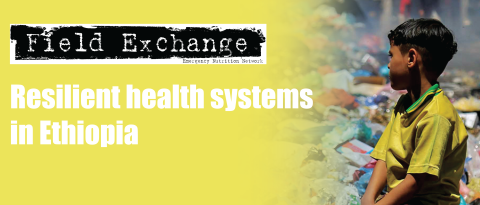WHO’s new emergencies programme bridges two worlds
Research snapshot[1]
This Q&A with Peter Salama, Executive Director of the World Health Organization (WHO) Health Emergencies Programme, explores how the new initiative is changing the way the agency helps countries prepare for and respond to health crises. The programme aims to create a single workforce, budget, set of rules, process and one clear line of authority to support WHO country offices to respond to emergencies. An incident management system allows information to be better shared across WHO and a new Contingency Fund for Emergencies enables an initial tranche of money to be delivered within 24 hours of the request for quicker deployment of people and finance. WHO was heavily criticised for its response to the 2014-2016 Ebola virus disease (EVD) outbreak in West Africa. Since then, under the new programme, WHO has delivered quicker and more effective responses; for example to the outbreak of Zika in Latin America, food insecurity in northern Nigeria and outbreaks of Rift Valley fever on the Mali-Niger border.
The WHO programme will be helped by a new set of procedures recently finalised with the Office for the Coordination of Humanitarian Affairs (OCHA). These provide criteria for when OCHA should activate the humanitarian system in response to a major infectious disease outbreak. During the EVD outbreak, the cluster system was not activated when it should have been, which hampered the coordination of the response. Under the new procedures, it will be clear from the outset of an outbreak whether the health and other clusters should be activated and what their roles should be. As coordinator of the health cluster, this will help WHO provide a much more effective role in bridging the worlds of infectious diseases and humanitarian relief to provide an effective response.
Going forward, WHO seeks to combine its technical and normative comparative advantage with its renewed operational capacity to provide a more systematic response in emergency situations; a more predicable partner in humanitarian situations in 2017 and beyond.
Footnotes
[1] Bulletin of World Health Organisation 2017;95:pp8-9. WHO’s new emergencies programme bridges two worlds. www.who.int/bulletin/


